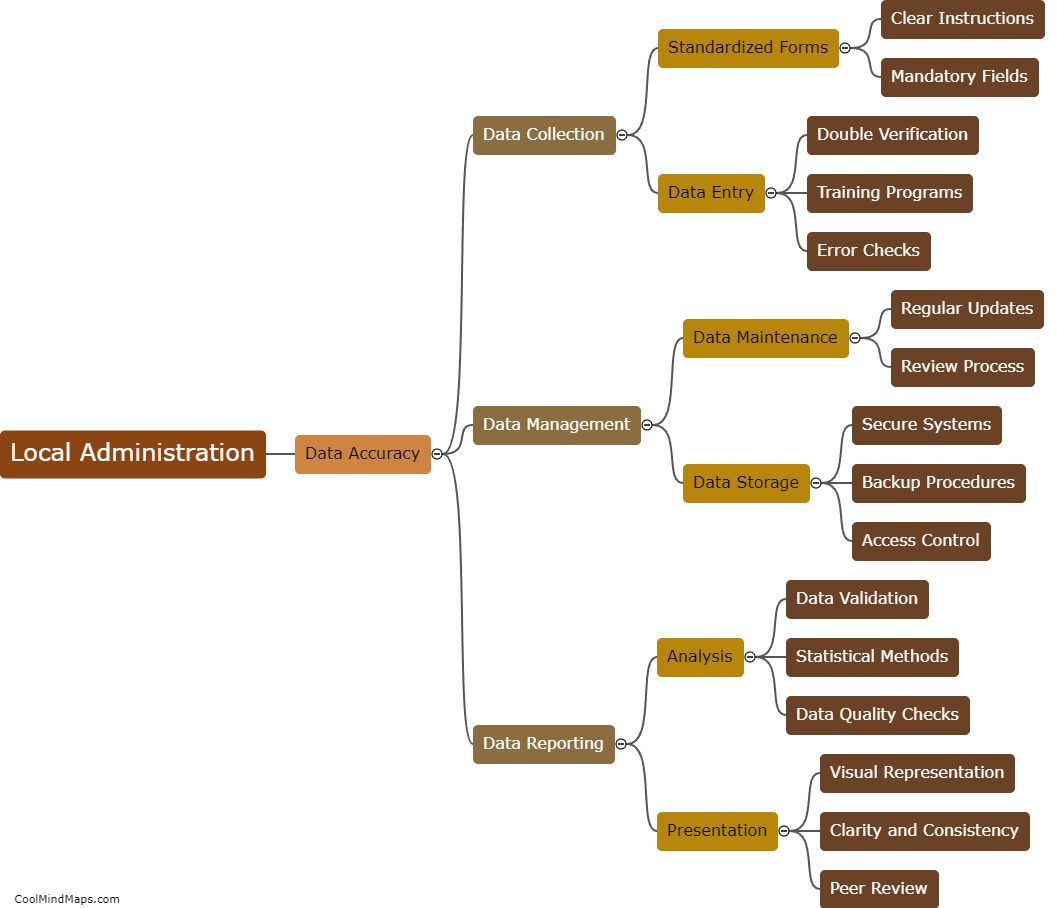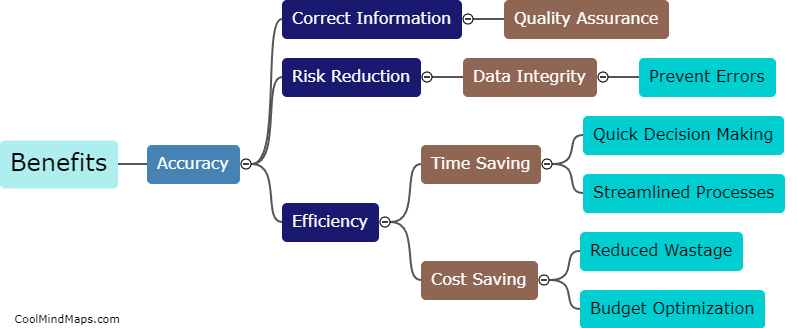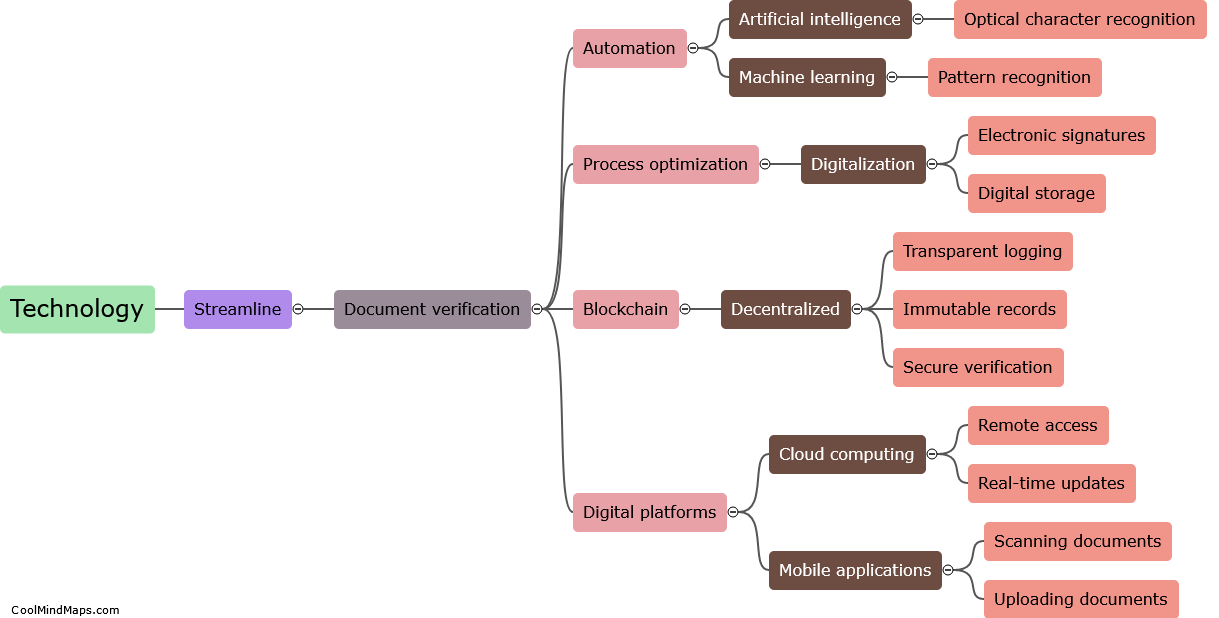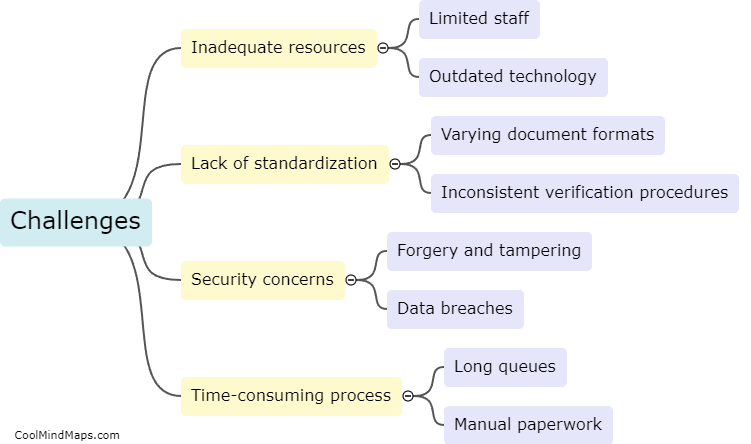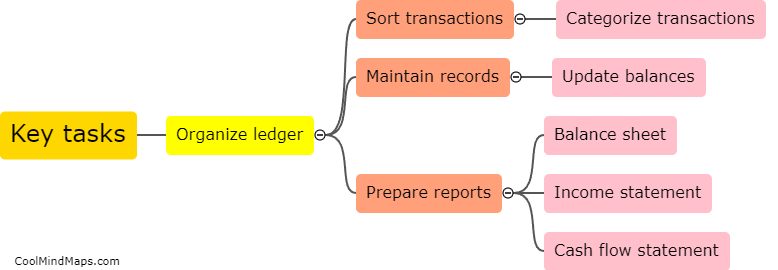What are the different types of ledgers?
Ledgers are essential accounting tools that help in organizing and tracking financial transactions. There are various types of ledgers used in accounting, each serving a specific purpose. The general ledger is the primary ledger that records all the financial transactions of a business. It includes accounts such as assets, liabilities, equity, revenue, and expenses. Subsidiary ledgers are used to categorize and track specific types of transactions, such as accounts receivable or accounts payable. They provide detailed information that can be easily summarized in the general ledger. Specialized ledgers, like a cash book or a sales ledger, are designed to record specific types of transactions exclusively. These ledgers contribute to a comprehensive accounting system, ensuring accurate financial records and aiding in effective decision-making.
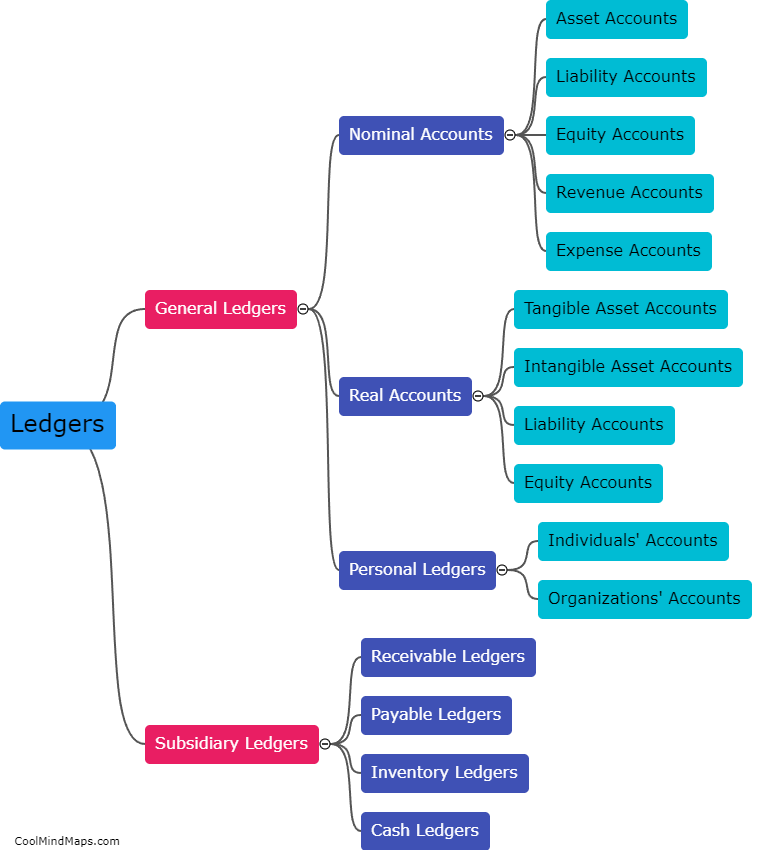
This mind map was published on 16 November 2023 and has been viewed 97 times.




